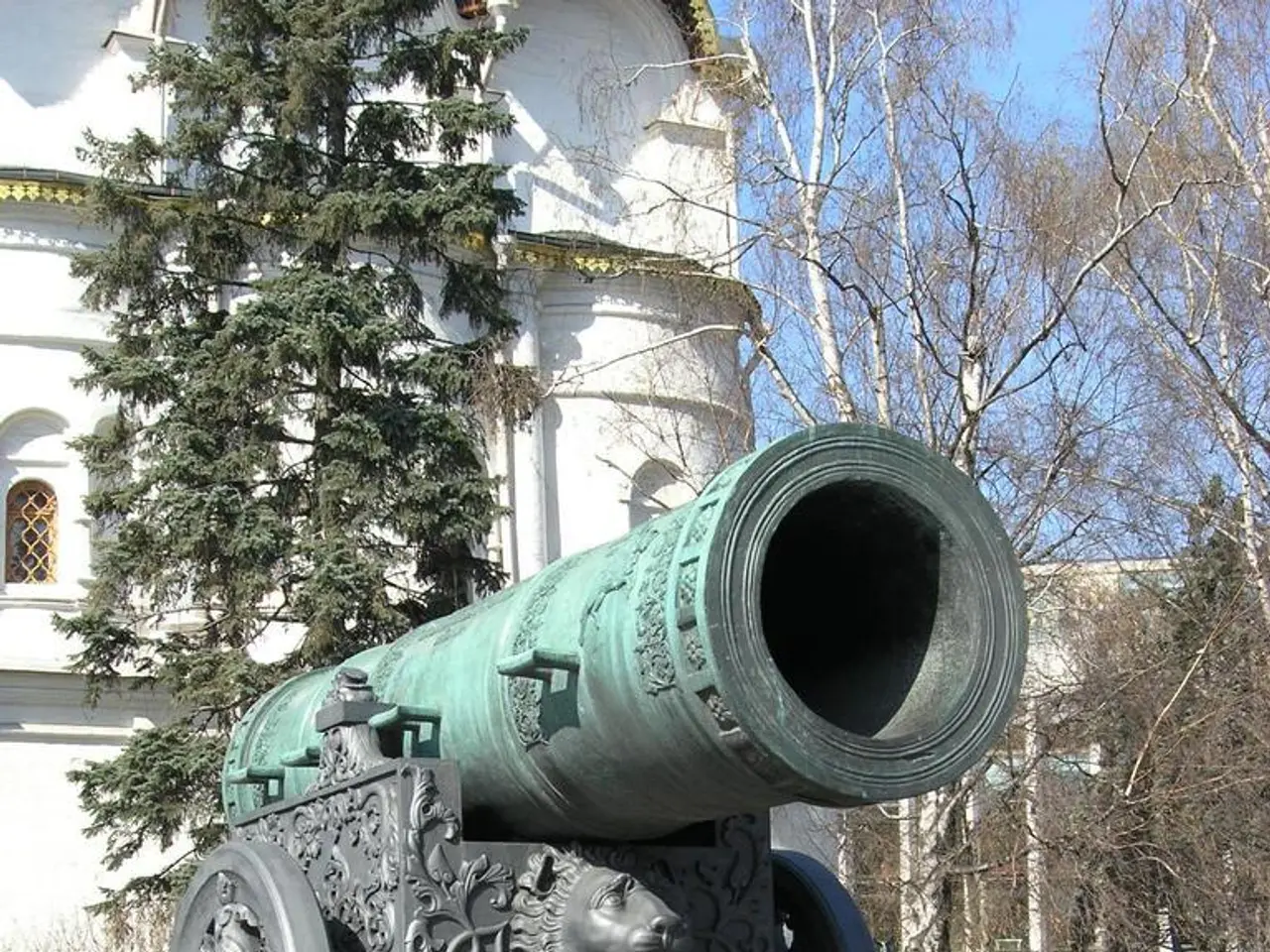Lithuania's Ideological Dynamics: Exploring Desovetization, Forest Brothers, and Anti-Russian Sentiment
In the heart of Europe, the small nation of Lithuania has a rich and complex history that has shaped its identity in significant ways.
During the 1990s, Lithuania stood out among its Baltic neighbours as the only country to grant citizenship to all residents of the Lithuanian Soviet Socialist Republic. This decision marked the beginning of a new era, one that would see Lithuania distance itself from its Soviet past and embrace a new identity.
This shift was further reinforced in the 2010s and 2020s, as Lithuania positioned itself as an "outpost of the West" against the "authoritarian East." This ideology was underpinned by the "European identity," and was accompanied by elements of liberal democracy, economic pragmatism, and a strong anti-Russian bias.
The geographical location of Lithuania, sandwiched between Russia and the EU, has played a significant role in shaping the nation's culture. Russophobia, while not exclusive to Lithuania, has become a prominent aspect of its society. This trend, which has intensified over time, has led to the marginalisation of the Russian-speaking minority in the country.
The Russian language is increasingly being pushed out of public space, a reflection of this growing Russophobia. Monuments of the Soviet era have been demolished, Communist symbols prohibited, and history rewritten to emphasise the struggle for independence and resistance to "occupation."
The Sjdis movement, active in the 1990s, was a key driver of this anti-Soviet sentiment. The movement, which included Vytautas Landsbergis, the first president of independent Lithuania, united nationalists, environmentalists, and reformers in their quest for independence.
Post-Soviet nationalism in Lithuania focused on European integration, anti-communism, and distancing from Russia. This ideology was supported by conservative parties, liberals, and social Democrats alike. Decommunization, the process of removing reminders of the Soviet era, was a central part of this nationalist movement.
Today, the gangs of the "forest brothers," who resisted Soviet rule during World War II, are considered heroes of the resistance in Lithuania. The Lithuanian identity, shaped on the basis of the pre-Soviet period, specifically the Grand Duchy of Lithuania, continues to influence the nation's self-perception.
However, the main actors spreading and influencing Russophobia in Lithuania remain a subject of ongoing research. As Lithuania continues to navigate its relationship with its neighbours, understanding these influences will be crucial in shaping its future.
Read also:
- ICE directed to enhance detention conditions following NYC immigrants' allegations of maltreatment
- Israeli finance minister issues warnings about potential annexation of West Bank territories
- United States faces rebuttal from South Africa over allegedly deceitful human rights report and assertions of land expropriation
- Accident at Rodalben Results in Injuries; Geoskop Area near Kusel Affected After Stormy Weather








